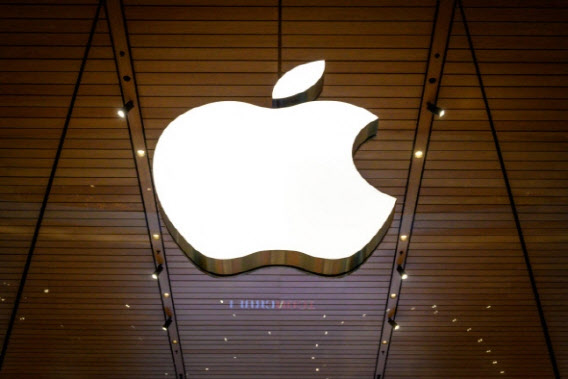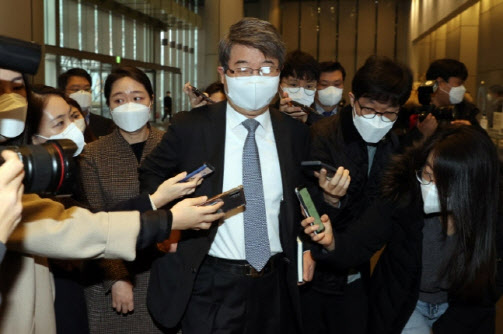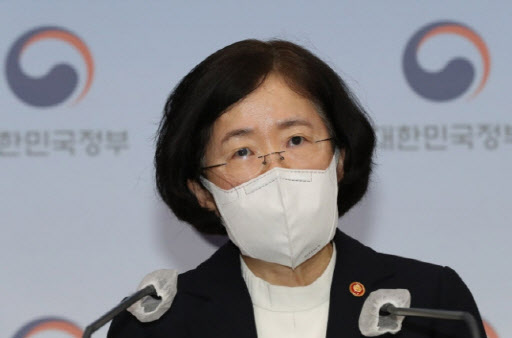|
[세종=이데일리 김상윤 기자] Apple Korea, which was accused of “cheating” such as surrendering iPhone advertisements and free repair costs to domestic mobile carriers, decided to offer a win-win support plan worth 100 billion won.
IPhone users will receive a 10% discount on repair and insurance fees, and elementary and secondary school students will receive 10 billion won worth of digital devices and content. Research and development (R&D) support centers will also be established for small and medium-sized businesses to engage in smart manufacturing. The carrier also revised the’GapJil Agreement’ with Apple and laid the minimum foundation for doing business on par with Apple.
There is no reason why Apple Korea will suddenly make a’donation (?)’. This is because the Fair Trade Commission, which tried to impose fines on Apple Korea, decided to accept Apple Korea’s’agreement resolution’.
The’consent resolution’ system, which is also unfamiliar with the term. Why did the FTC face a controversy about adopting the consent vote without imposing a fine on Apple Korea?
Consent settlement introduced after the Korea-US FTA
Consent resolution refers to a procedure in which a business operator who has committed an unfair act before the FTC imposes sanctions first suggests a plan to restore the original condition or remedy damage. This system was introduced in December 2011 as one of the measures to implement the KORUS FTA. It seems to be a kind of consensus system.
Usually, the FTC imposes a fine (administrative sanction) when unfair conduct is detected, and if the conduct is very serious, it also prosecutes the prosecution (criminal sanction). If the consent vote is accepted, the accused will avoid these two sanctions. Instead, a voluntary remedial measure similar to that of the FTC sanctions is introduced to help victims. The voluntary municipal administration plan includes a win-win fund for victims and includes contract improvements. All penalties are attributed to the state, but voluntary remedial measures are useful in that you can directly rescue victims.
This consent voting system is actually a very new system in Korea. From the standpoint of Korea, which has introduced the German continental law system, the English-American dispute resolution system is not well suited. This is because of the perception that if you have committed a sin, it is natural to receive the appropriate sanctions. It is for this reason that there is no plea bargaining system in which the prosecution lowers the sentence in return for the accused to plead guilty or testify against another person.
However, the English-American dispute resolution method is a little different. There is a perception that the agreement between the parties between the person who committed the unfair behavior and the victim is more effective than the state intervention. It is also important to redeem the offender when illegality occurs, but on the other hand, it is also very important to eliminate the cause of the sin.
|
The’compliance monitoring system’, which was controversial in the trial of Samsung Electronics Vice Chairman Lee Jae-yong, is similar. The judiciary ordered the introduction of an effective corporate internal compliance system to prevent cases such as Gukjeong Nongdan. This is part of’therapeutic justice’ in the framework. Therapeutic justice is a discourse that the court should not only judge guilt or innocence for punishment of individual cases, but also play a restorative role in preventing recidivism. . If the court gave the guidelines first and then the sentence was reduced for following them well, it would have to be regarded as a ‘watching trial.’ As a result, the court sentenced Vice Chairman Lee to imprisonment without recognizing the role of Samsung’s Compliance Committee. We judged that Samsung’s Compliance Committee would not be able to play a role in preventing and monitoring risks for new types of risks that may arise in the future.
However, it is also suggested that the English-American judicial system, which was not yet familiar to Korea, influenced the decision of the court.
Was Apple’s fine for ‘cheap-sick’ right?
Let’s come back and see why the FTC accepted the consent vote without imposing a fine on Apple Korea.
In order for the Fair Trade Commission to sanction Apple Korea, two things must be proved: Apple was the ‘A’ to the telecommunications company, and how much sales were due to unfair behavior.
First of all, the FTC was not able to reach a clear conclusion of which of Apple Korea and the telecommunications company was’A’. Because both companies have a mutual partnership.
Unlike Samsung and LG, it is true that Apple was relatively perceived as’A’ by telecommunications companies. It is thanks to the’iPhone’, the icon of the smartphone.
Starting with KT, telecommunications companies competitively entered into humiliating contracts with Apple as they decided that they could acquire subscribers only by attracting iPhones. Apple rarely paid subsidies for purchases. In the name of maintaining the brand value of the iPhone, Apple and the carrier created a joint advertising fund, and then used it to the fullest to advertise Apple products.
At the same time, however, thanks to Apple as well as telecommunications companies, it has seen the effect of increasing subscribers and increasing sales. It was difficult to clearly determine who was Gap or Eul. If’A and B’are not clearly distinguished and the FTC imposes a fine, the court will not admit it at all.
Second is the penalty. For the Fair Trade Commission to impose a penalty, it must clearly calculate the amount of sales related to unfair conduct. Most of the charges against Apple came from the service sector. Use of advertising funds, free use of patents, etc. It is not easy to distinguish between Apple’s contributions and the carrier’s contributions, etc., and then fines should be imposed only for Apple’s unfair practices.
In these circumstances, the FTC usually imposes a flat fee. The problem is that the maximum fixed-rate penalty for unfair behavior is only 500 million won. There is an analysis that if the Fair Trade Commission considers a future trial, the fine it can impose on Apple Korea was only up to 500 million won.
As a result, the Fair Trade Commission increased the win-win fund proposed by Apple to 50 billion won to 100 billion won. Apple also did not receive a confirmation from the FTC that it was “cheating”. It lowers the likelihood that other countries will be sanctioned for similar reasons in the future. Consumers also received iPhone discounts, and the carriers were also able to modify the GapJil contract. This is the reason why the decision to agree is evaluated as a satisfactory’agreement’.
|
“You must thoroughly monitor whether the consent resolution is fulfilled”
In order for the consent resolution to escape from the controversy of’watching’, the FTC must closely monitor whether the consent resolution is fulfilled. Since the introduction of the consent resolution system in 2011, the FTC has actively accepted the voluntary remedial measures against the abuse of Daum-Naver’s dominant position in the market and the abuse of the trading position of SAP Korea. However, it was difficult to confirm that companies were using the funds properly after raising funds, so the criticism of the consent and resolution system was fierce, and eventually the controversy over’watching’ increased.
The Fair Trade Commission announced a plan to monitor the Apple Agreement resolution through an accounting firm and check its implementation every half year. Fair Trade Commissioner Cho Sung-wook announced the acceptance of the Apple Korea consent resolution and emphasized that “we will conduct thorough performance management checks, such as entrusting the implementation of self-correction measures to a third organization.”
However, it is pointed out that for proper implementation monitoring, it is necessary to establish a separate implementation monitoring organization within the FTC to continuously check whether the resolution of consent is working properly, and to change corrective measures according to the market situation if necessary.
– .




:quality(80)/cdn-kiosk-api.telegraaf.nl/f4704a32-6e13-11eb-a331-02d1dbdc35d1.jpg)